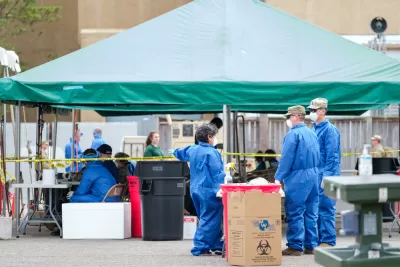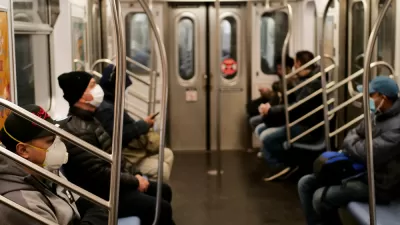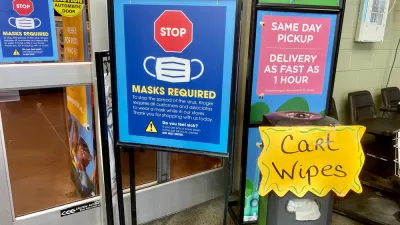Dr. Scott Gottlieb, President Trump's former Food and Drug Administration commissioner, warned CBS viewers recently that the U.S. was at a "dangerous tipping point" in the pandemic. "We are on the cusp of exponential growth," he added later.

On Oct. 25, Margaret Brennan, the moderator of "Face the Nation," asked Dr. Scott Gottlieb, who led the U.S. Food and Drug Administration from May 2017 to April 2019 in the Trump administration and is a frequent guest on her show, "Where are we in the trajectory of this pandemic?" His response:
"We're at a dangerous tipping point right now, we're entering what's going to be the steep slope of the curve of the epidemic curve...These cases are going to continue to build. There's really no backstop here. I don't see forceful policy intervention happening any time soon."
A "backstop" refers to a policy barrier to prevent widespread infections, such as business restrictions, e.g., closing down bars and indoor dining or reducing capacity, implementing curfews, mask mandates, or stay-at-home orders that 42 governors and the mayor of the District of Columbia issued from March 19 to April 7.
"Gottlieb has frequently said he believes states across the U.S. are unlikely to revert to widespread stay-at-home orders again, in part because better testing makes it easier to determine where hot-spot areas are and in part because the public’s willingness to accept them is low," writes Kevin Stankiewicz on Oct. 26
“I think we’re at a tipping point right now where if we took some aggressive, targeted steps right now we could potentially forestall the worst of it,” Gottlieb said on CNBC’s “Squawk Box” on Monday.
“We need to try to pull together and see what we can do to try to control the spread so our health-care systems don’t become overwhelmed. Because once they do, once we reach that breaking point, the policy action that we’re going to need to take is going to be more aggressive, unfortunately, than if we had did some things up front,” he said.
That tipping point has already been reached by some hospitals
"In Texas, authorities are scrambling to shore up resources in El Paso, where intensive care units hit full capacity on Saturday and where covid-19 hospitalizations have nearly quadrupled to almost 800 in less than three weeks, report Hannah Knowles and Jacqueline Dupree for The Washington Post on Oct. 25.
In Utah, the state hospital association warned that if current trends hold, it will soon have to ask the governor to invoke “crisis standards of care” — a triage system that, for example, favors younger patients.
“It’s an extreme situation, because this means that all your contingency planning has been exhausted,” said Greg Bell, president of the Utah Hospital Association.
Fauci on pandemic's trajectory
On Oct. 12, the nation's top infectious disease expert, Dr. Anthony Fauci, was asked by CNN to comment on "the latest forecast of the widely-used model from the Institute for Health Metrics and Evaluation (IHME) at the University of Washington [that] projects another 181,000 deaths in the United States by February." He noted a similar trajectory as Gottlieb.
"I hope these numbers that you're quoting, which are absolutely correct numbers, jolt the American public into the realization that we really cannot let this happen — because it's on a trajectory of getting worse and worse. And that's the worst possible thing that can happen as we get into the cooler months," said Fauci, the director of the National Institute of Allergy and Infectious Diseases.
As of Oct. 29, the influential model projects over 399,000 deaths by Feb. 1, or 177,000 additional deaths due to COVID-19 on top of the nearly 229,000 lives lost-to-date that we know of. The IHME model lists two alternative projections for the same date:
- A reduction of 61,000 deaths if "universal masking" was implemented.
- An additional 115,000 deaths if current "mandates were eased."
White House strategy becomes more apparent
The second bullet essentially coincides with President Trump's exhortations to governors to "open up" in order to stimulate the economy.
Along those lines, White House Chief of Staff Mark Meadows, who also appeared on a Sunday show, State of the Union, on Oct. 26, told host Jake Tapper, “We’re not going to control the pandemic." Rather than pursue what the Centers for Disease Control and Prevention and the public health community call nonpharmaceutical interventions (NPIs), aka mitigation strategies, he added, "We are going to control the fact that we get vaccines, therapeutics and other mitigation areas."
Pressed by Tapper on why the US isn't going to get the pandemic under control, Meadows said: "Because it is a contagious virus just like the flu.
"NPIs are among the best ways of controlling pandemic flu when vaccines are not yet available," according to the CDC.
However, Trump officials have interfered with CDC reports. The president has been consulting the newest and most influential member of the White House Coronavirus Task Force, radiologist Scott Atlas, who espouses a herd immunity approach to the pandemic.
Additional reading: "The US is close to having 'exponential spread' in some areas, and the hardest part may still be ahead, former FDA official says," CNN, Oct. 26, 2020.
Related in Planetizen:
-
Applying the Lessons of COVID-19 to Climate Change: Now that everyone understands what an exponential curve looks like..., April 1, 2020
FULL STORY: Transcript: Scott Gottlieb discusses coronavirus on "Face the Nation," October 25, 2020

Alabama: Trump Terminates Settlements for Black Communities Harmed By Raw Sewage
Trump deemed the landmark civil rights agreement “illegal DEI and environmental justice policy.”

Planetizen Federal Action Tracker
A weekly monitor of how Trump’s orders and actions are impacting planners and planning in America.

The 120 Year Old Tiny Home Villages That Sheltered San Francisco’s Earthquake Refugees
More than a century ago, San Francisco mobilized to house thousands of residents displaced by the 1906 earthquake. Could their strategy offer a model for the present?

In Both Crashes and Crime, Public Transportation is Far Safer than Driving
Contrary to popular assumptions, public transportation has far lower crash and crime rates than automobile travel. For safer communities, improve and encourage transit travel.

Report: Zoning Reforms Should Complement Nashville’s Ambitious Transit Plan
Without reform, restrictive zoning codes will limit the impact of the city’s planned transit expansion and could exclude some of the residents who depend on transit the most.

Judge Orders Release of Frozen IRA, IIJA Funding
The decision is a victory for environmental groups who charged that freezing funds for critical infrastructure and disaster response programs caused “real and irreparable harm” to communities.
Urban Design for Planners 1: Software Tools
This six-course series explores essential urban design concepts using open source software and equips planners with the tools they need to participate fully in the urban design process.
Planning for Universal Design
Learn the tools for implementing Universal Design in planning regulations.
Jessamine County Fiscal Court
Caltrans
Institute for Housing and Urban Development Studies (IHS)
City of Grandview
Harvard GSD Executive Education
Toledo-Lucas County Plan Commissions
Salt Lake City
NYU Wagner Graduate School of Public Service





























